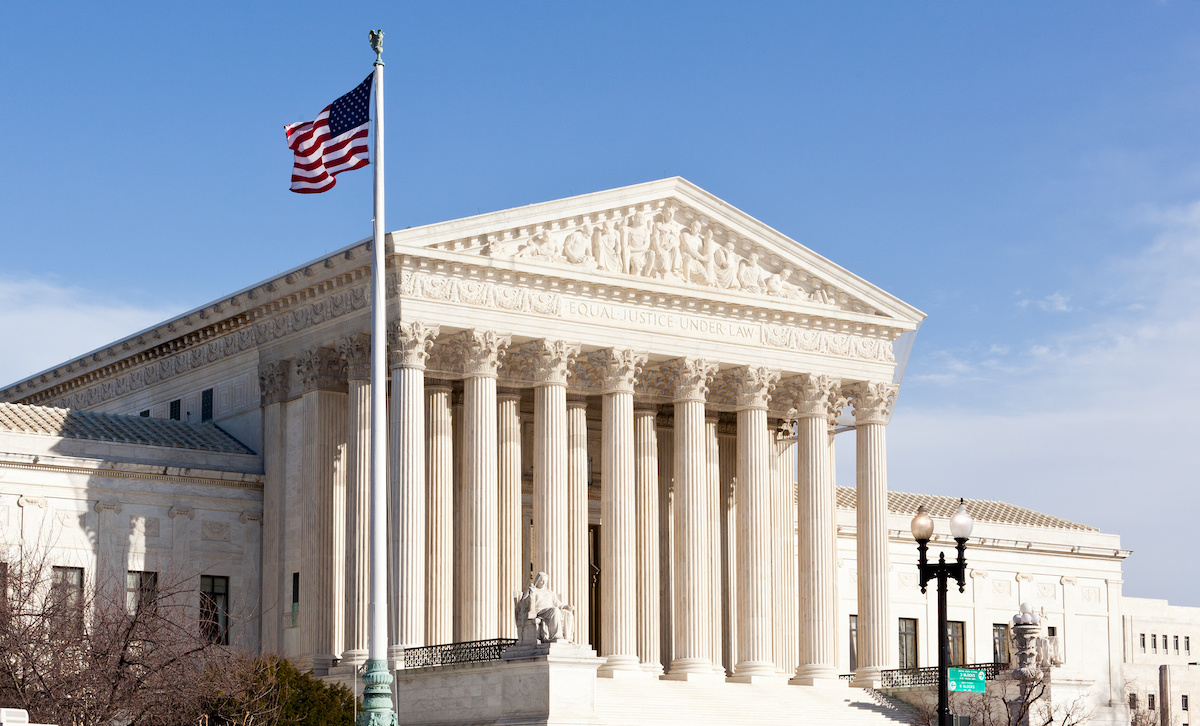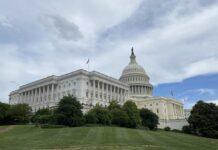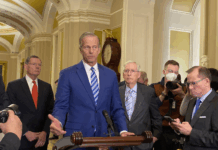
WASHINGTON (States Newsroom) — President Donald Trump has asked the U.S. Supreme Court to uphold his firing of the head of the independent federal agency tasked with protecting government whistleblowers.
Trump’s appeal Sunday to the Supreme Court marks the first time the administration has escalated any of the numerous legal challenges it faces to the nation’s highest bench. The Trump administration is confronted with scores of lawsuits as it dismantles federal agencies and slashes numbers of federal workers.
The case in question centers on a legal challenge from Hampton Dellinger, who is serving a five-year term as the special counsel for the U.S. Office of Special Counsel. Dellinger, of North Carolina, was nominated by President Joe Biden and confirmed by the Senate in a party-line vote on Feb. 27, 2024.
The Office of Special Counsel has the authority to enforce four major laws, including the Whistleblower Protection Act and the Hatch Act. The office provides a secure process for government workers to report wrongdoing, and through Hatch Act enforcement it polices prohibitions on partisan political activities by government employees.
Trump ordered Dellinger’s termination just shy of one year into his term.
Dellinger challenged his firing in U.S. District Court and was granted a temporary measure that, for now, protects his employment. An appeals court dismissed Trump’s challenge to strike down the temporary restraining order.
Now the Trump administration wants the Supreme Court to intervene and allow Dellinger’s firing.
‘Assault on the separation of powers’
In the undated emergency application to the high court obtained Sunday by news outlets, including The Associated Press and The Hill, Department of Justice Acting Solicitor General Sarah Harris wrote that the case “involves an unprecedented assault on the separation of powers that warrants immediate relief.”
“For apparently the first time ever, a federal court has issued an injunction preventing the President from removing an agency head and putting someone else in his place. Leaving that order in place would suggest that district courts can, without appellate review, stymie any of the President’s exclusive Article II powers for up to 28 days,” according to the emergency appeal published by news outlets, citing the maximum number of days for a temporary restraining order.
Trump’s appeal to the Supreme Court is likely to be the first of many.
A legal tracker maintained by the online forum Just Security as of Monday registered 74 lawsuits filed against the administration since Trump’s inauguration.
Labor groups, state attorneys general, and former and current federal employees have sued the Trump administration over employment terminations and alleged constitutional violations by Trump’s billionaire operative Elon Musk, who has infiltrated numerous federal agencies through the U.S. DOGE Service, created by a Trump executive order.
Firing fought
Dellinger joined the growing wave of lawsuits against the administration when he challenged his firing in a Feb. 10 complaint filed in the U.S. District Court for the District of Columbia.
The special counsel alleged Trump broke the law that states the president can remove him from his five-year term “only for inefficiency, neglect of duty, or malfeasance in office.”
“On the night of February 7, 2025, President Trump disregarded that clear statutory language and, in a one-sentence email, purported to terminate Special Counsel Dellinger. That email made no attempt to comply with the Special Counsel’s for-cause removal protection. It stated simply: ‘On behalf of President Donald J. Trump, I am writing to inform you that your position as Special Counsel of the US Office of Special Counsel is terminated, effective immediately,’” according to Dellinger’s complaint.
District Judge Amy Berman Jackson issued a temporary restraining order on Feb. 12 stating that Dellinger could continue working in the Office of the Special Counsel. Jackson, who was nominated by former President Barack Obama in 2011, received a unanimous Senate confirmation vote.
“Independence is essential to any Special Counsel’s ability to perform the unique set of duties and reporting requirements set forth in the statute. Defendants have identified no impending injury or alleged constitutional error that cannot be fixed in the future that would outweigh the harm that will flow from the precise circumstance Congress deliberately chose to prohibit,” Jackson wrote.
Jackson denied the Trump administration’s motion to stay her order.
A three-judge panel for the U.S. Court of Appeals for the District of Columbia split 2-1 to dismiss Trump’s appeal as moot.
Judges Florence Y. Pan and Michelle Childs, both nominated by Biden, questioned Trump’s appeal because a lower court’s short-lived temporary restraining order is “ordinarily is not an appealable order.”
“The relief requested by the government is a sharp departure from established procedures that balance and protect the interests of litigants, and ensure the orderly consideration of cases before the district court and this court. Instead of entertaining an emergency appeal of a TRO, the normal course would be for us to wait for the district court to issue a ruling on the preliminary injunction, which would be immediately appealable,” they wrote.
Judge Gregory George Katsas, a Trump nominee and former deputy counsel to the president during Trump’s first administration, dissented.
A district court hearing is set for Feb. 26.






